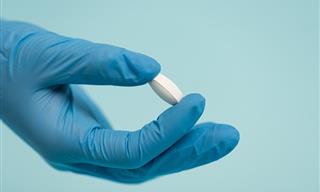Recent reports suggest that aspartame, a commonly used artificial sweetener in a vast array of products across the globe, is set to be identified as a potential human carcinogen.
The International Agency for Research on Cancer (IARC), the World Health Organization's (WHO) cancer research division, is all set to classify aspartame as "potentially cancer-causing to humans" in an upcoming report. The ingredient has been used for years in carbonated beverages and is also included in ice cream, sugar-free gum, low-fat yogurt, breakfast cereals, and cough drops. With a sweetness level around 200 times higher than sugar, only a small dose of the chemical goes a long way.
Related: The Sugar Substitutes That Are Harmful To Your Health
So why exactly is aspartame bad?

WHO has identified a potential link between aspartame and cancer. However, this doesn't necessarily mean it directly causes the disease, but that there is a small amount of evidence linking its consumption to people who have been diagnosed.
The IARC classifies substances into two additional serious groups, namely "likely to cause cancer in humans" and "known to cause cancer in humans". This classification encompasses over 1,100 diverse items, ranging from food and beverage ingredients to living conditions and hazardous activities.
Aspartame's association with cancer risk has already raised concerns due to the existing evidence. According to a 2022 study published in PLOS Medicine, aspartame consumption was associated with an increased risk of breast and obesity-related cancers. Additionally, a study carried out by the Ramazzini Institute in Italy during the early 2000s found a connection between aspartame and certain cancers in mice and rats.
It has been reported that the IARC gathered 7,000 research citations related to aspartame, of which 1,300 studies were included in the material package reviewed by experts.
The NHS states that all sweeteners must undergo extensive testing before being approved for use in the UK food market. Aspartame has already been declared unsuitable for individuals with phenylketonuria, a rare condition, due to the presence of an ingredient that cannot be metabolized by those affected.
How long has aspartame been used in food and drink?

In 1974, the Food and Drug Administration granted approval for aspartame to be used as a tabletop sweetener and dry base in various food products such as beverages, gelatins, dairy items, and pudding. In 1996, it was approved as a sweetener for general use.
Commonly associated with diet sodas like Coke Zero, Pepsi Max, Sprite, and Fanta Zero, as well as diet squash and cordial drinks, aspartame is frequently present in food items as well. The substance can be found in sugar-free gum, frozen desserts, reduced-sugar ketchup, specific breakfast cereals, and Muller Corner yogurts and energy bars. The sweetener is also used in a variety of zero-sugar and low-sugar items, including sugar-free Jell-O, tabletop sweeteners such as Nutrasweet and Equal, and Trident's sugar-free gum and Crystal Light.
Besides being used in food products, aspartame is also commonly used in medicines and supplements, including cough drops and vitamin gummies.
What's the alternative?

If you're looking for a substitute for Diet Coke, the only viable alternative is switching to regular Coca-Cola, although the excessive sugar content in soft drinks has been a source of worry for dietitians and dentists for a long time.
For a safe way to sweeten your beverages and food, consider using natural sweeteners like Stevia.
The International Council of Beverages Associations' executive director, Kate Loatman, said public health authorities should be "deeply concerned" by the "leaked opinion", and also warned it "could needlessly mislead consumers into consuming more sugar rather than choosing safe no- and low-sugar options."
Related: 8 Things that Happen When You Quit Sweeteners
How much aspartame is safe?
Although the review of aspartame reveals a potential association with cancer, it does not address the safe amount that can be consumed.
JECFA (the Joint WHO and Food and Agriculture Organisation’s Expert Committee on Food Additives), is also currently examining the use of aspartame this year. Aspartame has been declared safe by the JECFA since 1981 when consumed within the approved daily limit. To put it into perspective, a person weighing 60 kg (132 pounds) would need to consume anywhere from 12 to 36 cans of diet soda per day, depending on the aspartame content, to be considered at risk. This viewpoint has been widely supported by regulatory bodies in various countries, such as the United States and Europe.
Related: 25 Smart Ways to Cut Down On Your Sugar Consumption
Sources close to the IARC say that the decision to classify aspartame as a potential carcinogen is aimed at encouraging more research. This research will help agencies, consumers, and manufacturers draw stronger conclusions.
 Go to BabaMail
Go to BabaMail



























